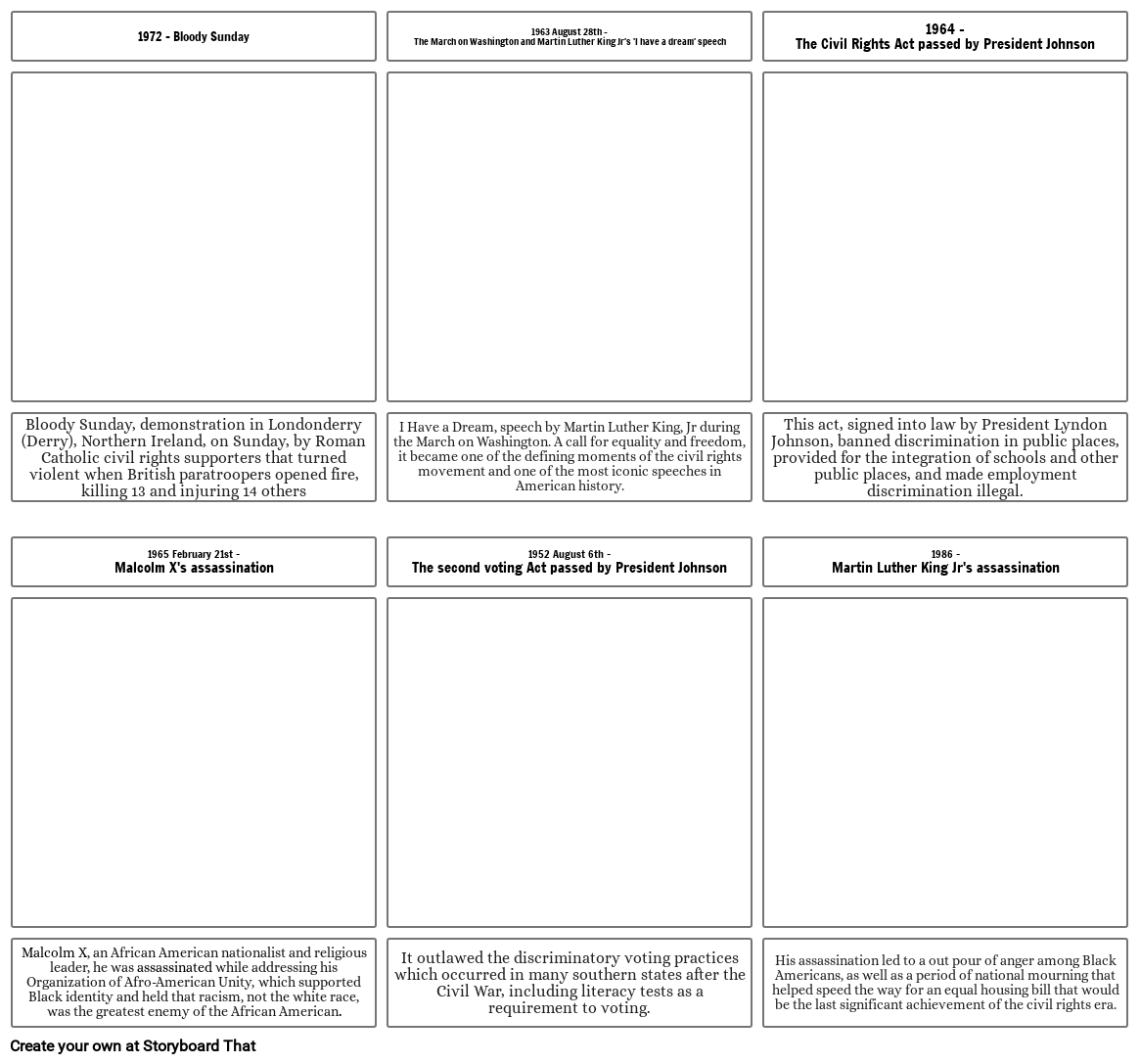History timeline

Storyboard Text
- 1972 - Bloody Sunday
- 1963 August 28th - The March on Washington and Martin Luther King Jr's 'I have a dream' speech
- 1964 - The Civil Rights Act passed by President Johnson
- Bloody Sunday, demonstration in Londonderry (Derry), Northern Ireland, on Sunday, by Roman Catholic civil rights supporters that turned violent when British paratroopers opened fire, killing 13 and injuring 14 others
- 1965 February 21st - Malcolm X's assassination
- I Have a Dream, speech by Martin Luther King, Jr during the March on Washington. A call for equality and freedom, it became one of the defining moments of the civil rights movement and one of the most iconic speeches in American history.
- 1952 August 6th - The second voting Act passed by President Johnson
- This act, signed into law by President Lyndon Johnson, banned discrimination in public places, provided for the integration of schools and other public places, and made employment discrimination illegal.
- 1986 - Martin Luther King Jr's assassination
- Malcolm X, an African American nationalist and religious leader, he was assassinated while addressing his Organization of Afro-American Unity, which supported Black identity and held that racism, not the white race, was the greatest enemy of the African American.
- It outlawed the discriminatory voting practices which occurred in many southern states after the Civil War, including literacy tests as a requirement to voting.
- His assassination led to a out pour of anger among Black Americans, as well as a period of national mourning that helped speed the way for an equal housing bill that would be the last significant achievement of the civil rights era.
Over 30 Million Storyboards Created
No Downloads, No Credit Card, and No Login Needed to Try!
